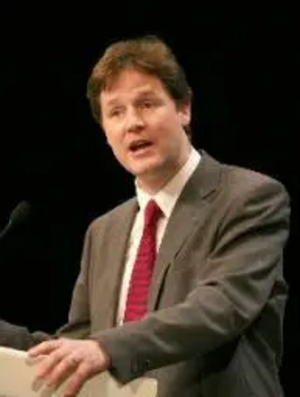Damian Green arrest shows how Labour is destroying our political system

When opposition politicians heard about Damian Green's arrest, many of us asked ourselves the same question: "When did it become a crime to hold the Government to account?"
Damian Green's arrest is a grave reminder of the Government's contempt for parliamentary democracy.
We already operate in a system where Parliament is effectively neutered, little more than a rubber stamp for legislation that ministers have already decided.
The Government was elected with the support of just 22 per cent of British voters, yet it presides over a culture of Whitehall secrecy and minimal parliamentary scrutiny.
Opposition MPs must table urgent questions to force ministers to address the House on major issues, while ministers merrily leak those same statements to newspaper journalists.
One of the weapons MPs do still have in their armoury is to play the Government at its own game. By releasing information of our own we can highlight matters of public interest that ministers would rather people didn't know about.
With parliamentary scrutiny so feeble, the media has become a surrogate debating chamber. And when dealing with an administration legendary for its secrecy, you increasingly have to rely on whistle-blowers to see the full picture.
Damian Green's arrest now threatens that ability, especially if MPs can no longer act as he did, without fear of the police knocking on their doors to rifle through their possessions and search their offices. Then yet more scrutiny will be lost.
We are made no safer by this arrest and the country will not be run any better. The door to proper public scrutiny of what the Government does in our name will have been closed a bit further, and the small shaft of light that still shines on the work of ministers will have narrowed even more.
It's the kind of behaviour we might expect to see in a tinpot dictatorship, not in a modern democracy.
The handling of this case raises a number of questions that demand answers as soon as possible.
The Metropolitan Police says that neither the search nor the arrest were conducted under the provisions of anti-terrorism legislation. Yet nine counter-terrorism officers were required to carry out the arrest of a middle-aged Conservative MP.
The Government has dismissed concerns that counter-terrorism laws can be misused. But time and again we have seen examples of powers that were rushed through Parliament being misused against people for crimes such as heckling Labour ministers at conferences or freezing Icelandic bank accounts.
Even if these laws were not invoked this time, the sight of anti-terrorist police enforcing laws unrelated to terrorism will only confuse the public further.
The Home Office's most senior civil servant, Sir David Normington, has confirmed that he was contacted by the police just before they carried out their searches, and that ministers didn't know about the arrest until after it had occurred some time later.
But we need to know what happened in the hours between Sir David being told and Damian Green's arrest. Were Home Office ministers really not aware that a senior opposition MP was about to be raided by police?
There is an extra detail to this case that is also troubling for MPs, who play an important role in their constituencies as recipients of a lot of personal information. The basis of the relationship between an MP and a constituent is trust and confidentiality.
MPs take up the cases of constituents on the understanding that they will treat information given to them sensitively.
The sight of police rifling through boxes of Mr Green's correspondence, through disc after disc of computerised information, will erode public confidence in the role MPs play in their communities. All at a time when confidence in politicians is already at an all-time low.
Surrounding all this is a whiff of hypocrisy about New Labour departments in Whitehall clamping down on leaks to opposition politicians when ministers have elevated judicious leaking to the press to an art form.
MPs have long got used to the depressing predictability of Sunday newspapers carrying intricate details of the latest government master plan before ministers have bothered to tell Parliament.
And who can forget the way Labour politicians ruthlessly used leaks from Whitehall to damage the hapless Major administration before the 1997 general election? And guess who was the master at using those leaks most aggressively? Gordon Brown.
The Prime Minister must now do three things: he must clearly dissociate himself from the police operation altogether; he must clarify urgently what Home Office civil servants told ministers, and when; and he must instantly end his habit of leaking Whitehall information to secure favourable headlines for his own Government, while ministers now stand idly by as an opposition MP is arrested for seeking to bring Whitehall information to light in the first place.
Our political system is already in deep trouble: sinking public confidence in MPs, feeble parliamentary scrutiny, a rigid culture of Whitehall secrecy, and an electoral system that hands unprecedented powers to governments freed from any meaningful scrutiny from other parties.
This unprecedented arrest is a wake-up call. We must save our broken democracy.
Nick Clegg MP